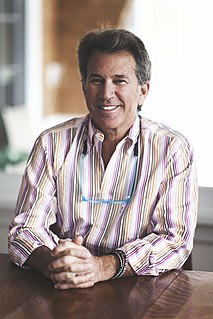A Quote by Bryant H. McGill
We must plant trees, grow gardens instead of lawns, ride bicycles when we can and support responsible local businesses over big brands.
Related Quotes
But what is work and what is not work? Is it work to dig, to carpenter, to plant trees, to fell trees, to ride, to fish, to hunt, to feed chickens, to play the piano, to take photographs, to build a house, to cook, to sew, to trim hats, to mend motor bicycles? All of these things are work to somebody, and all of them are play to somebody. There are in fact very few activities which cannot be classed either as work or play according as you choose to regard them.
I believe that virtually everyone has the ability to either grow some food at home, or to find an appropriate location to start a garden. I may sound like a kook who plants my landscape with cucumbers instead of carnations, peppers instead of petunias, and fruit trees rather than ficus, but I am convinced that wherever you go, you can grow food! Now is the time for us to join together and plant the seeds that will transform the places in which we live.
There's also a growing trend toward having gardens in schools to literally show kids where food comes from by having them grow and prepare their own food. There's also a movement that's bringing farmers into schools and creating relationships between local farms and local cafeterias, so that instead of frozen mystery meat, you have fresh produce that's coming from the area that has a name and a face associated with it.
I think that today, more so than ever, corporate responsibility is the best strategic as well as financial path that most businesses can follow. For most businesses there are both compelling reasons to be responsible and compelling statistics that validate that responsible businesses do better according to traditional financial metrics. Of course, how you define "responsible" is somewhat of a conundrum.
The rapidly evolving global economy demands a dynamic and creative workforce. The arts and its related businesses are responsible for billions of dollars in cultural exports for this country. It is imperative that we continue to support the arts and arts education both on the national and local levels. The strength of every democracy is measured by its commitment to the arts.
Local brands evoke national pride, are seen as less profit-oriented, and are often formed on deep local insights. But quality worries persist, innovation is questioned, the information can be woefully inadequate, they are sometimes seen to be opaque and their advertising is clearly recognised as not being of a global standard. For local brands, quality, innovation and transparency are critical hills to climb.



































